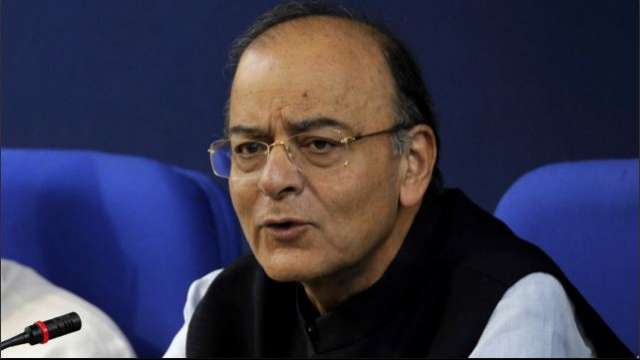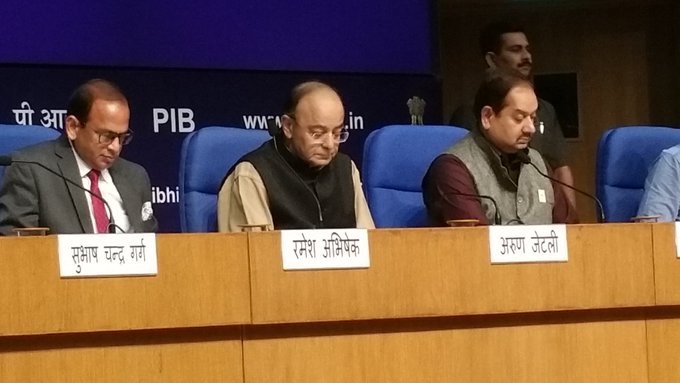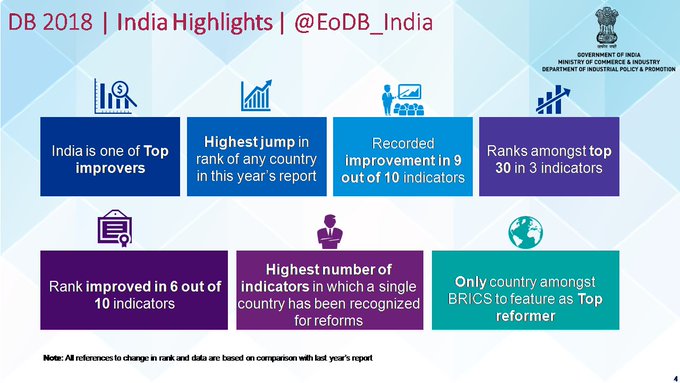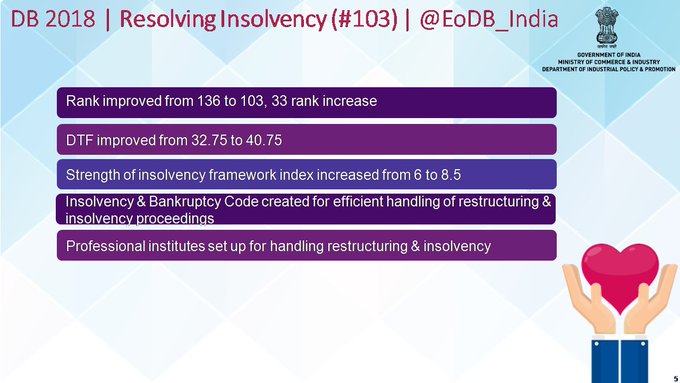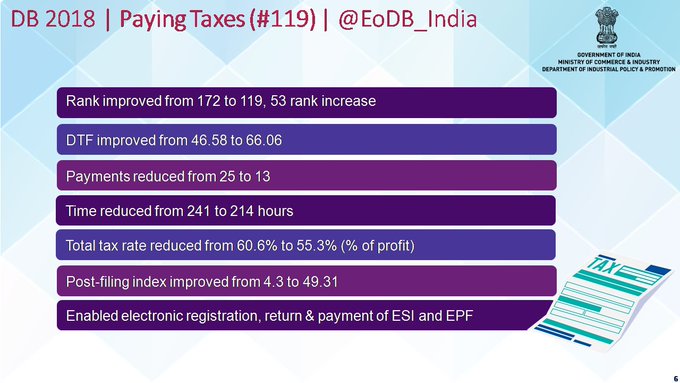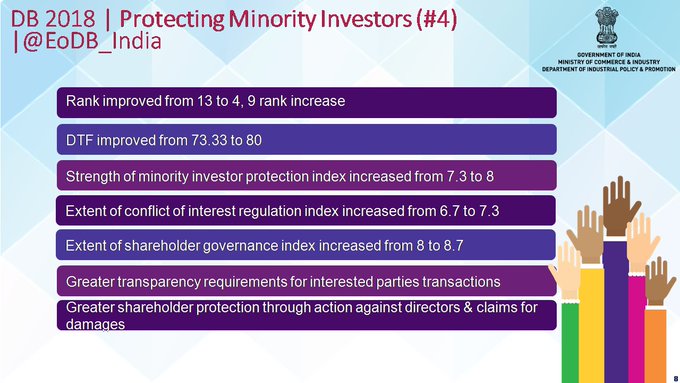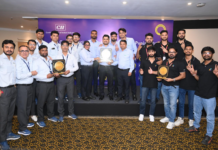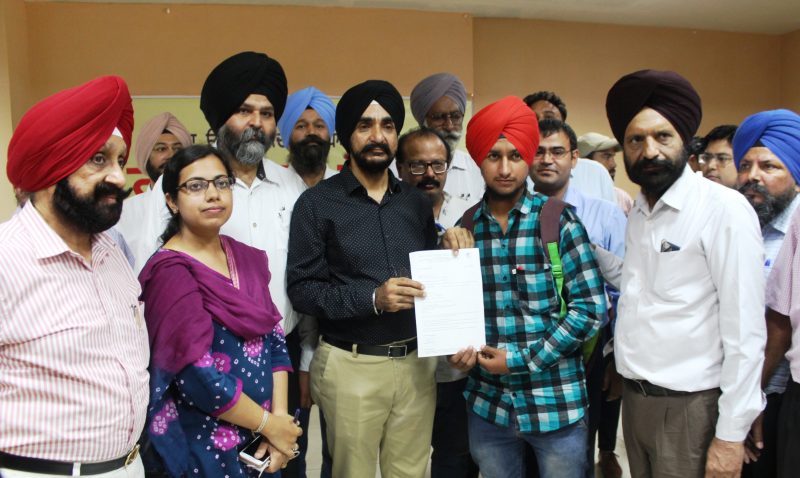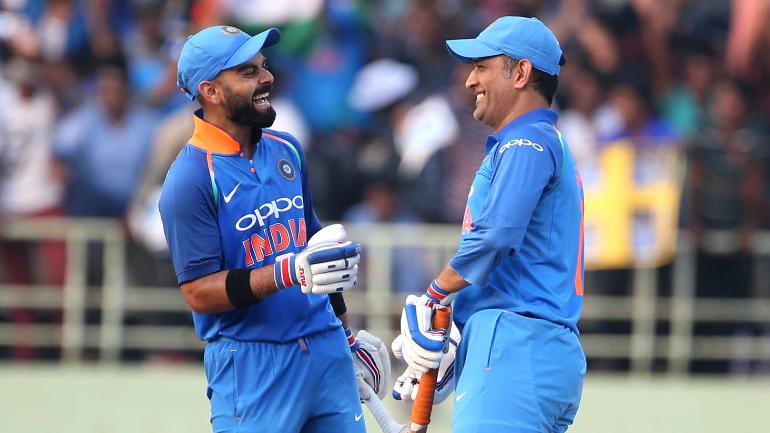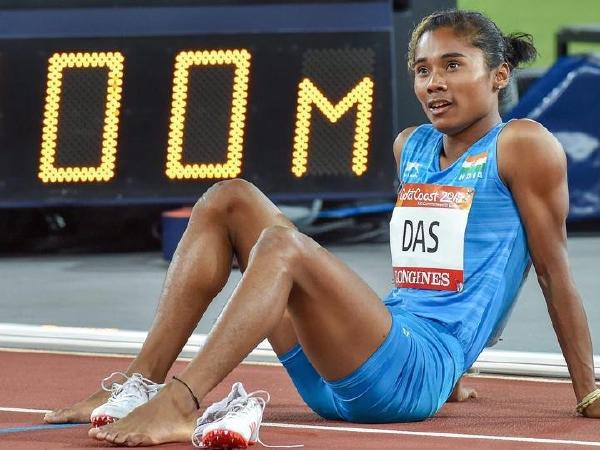Arun Jaitley said that India has improved in multiple count according to World Bank report.
India has jumped 30 places to rank 100th in the World Bank’s ‘ease of doing business’ ranking, helped by a slew of reforms in taxation, licensing, investor protection and bankruptcy resolution. This is a major shot of arm for the government which is fighting a battle of perception with opposition attacking it over alleged faulty implementation of demonetization and GST. The World Bank praised India and the constant work done in last two and three years but acknowledged that much work still needs to be done.
Union Finance Minister Arun Jaitley made this announcement in an official press conference. Implementation of GST was not incorporated while compiling the report, according to World Bank.
Jaitley also said India is the only major economy which the World Bank has hailed for doing structural change. This the highest jump of rank for any country in this year’s report. In 6 out of 10 indicators, India has improved. In 3 parameters, India has improved in 9 out of 10 indicators. In 3 indicators, India is in the top 30.
Tax compliance has been a big focus of the Modi government and it has been recognised by the World Bank.
India has also done significantly well in parameters such as giving protection to minorities for doing business. Arun Jaitley said, India saw jump in investor protection initiatives, credit availability in the World Bank’s ease of doing business ranking. In the press conference, Arun Jaitley said that steps are being taken and it is definitely possible to breakthrough to top 50 in the ‘ Ease of Doing Business’, as envisioned by PM Modi when he took office.
The parameters that witnessed improvement in 2016-17 were India making it faster for start business, reduction in procedures and time required to obtain building permit, easier access to credit, protecting minority investors, ease of paying taxes, trading across borders, enforcing contracts and making resolving insolvency easier, the World Bank said.
But it still lags in areas such as starting a business, enforcing contracts and dealing with construction permits. It takes 30 days now to register a new business, down from 127 days 15 years ago, but “the number of procedures is still cumbersome for local entrepreneurs who still need to go through 12 procedures”, it said.
“This is a major major jump,” Rita Ramalho, Acting Director for World Bank’s Global Indicators Group, told PTI in Washington, attributing the climb of 30 places to the series of reforms undertake by the Modi government since 2014.
Santiago Croci Downes, Acting Manager, Doing Business Unit at World Bank, said that in the 15 years’ history of this annual report, there have been only five countries like Georgia and Rwanda which made a massive jump in one year. But none of them were as big an economy as India. Noting that India made a very big effort in the past two years, the World Bank said the results now reflect those initiatives.
“This is a continuous effort of two or three years. But there’s still a long way to go,” she said. India used to be in the bottom quarter of the distribution, now it’s in the middle which is a big improvement.”It (India) is still a place where there is room for improvement in making the life of entrepreneurs, less bureaucratic, making transactions simpler and more efficient and less costly. So, there’s still significant room for improvement. But it was a very significant change and even not just in relative but also in absolute terms,” she said.
In the last report, India’s place remained unchanged from previous year’s ranking of 130 among the 190 economies that were assessed on ten parameters.
Besides implementation of the roll-out of the big-bang Goods and Services Tax (GST) from July 1 this year, the government has considerably eased procedures for setting up businesses in the country. The insolvency and bankruptcy law too has been operationalised, which paved way for speedier exit of failed businesses.
The NDA-government has been taking bold reform initiatives since it came to power in May 2014. Following release of last report in October 2016, Prime Minister Narendra Modi had asked the top officials in states and at the Centre to study the report to analyse areas requiring reforms and improvement. The government has been making efforts to further improve ease of doing business and aims to bring the country in the top 50.




